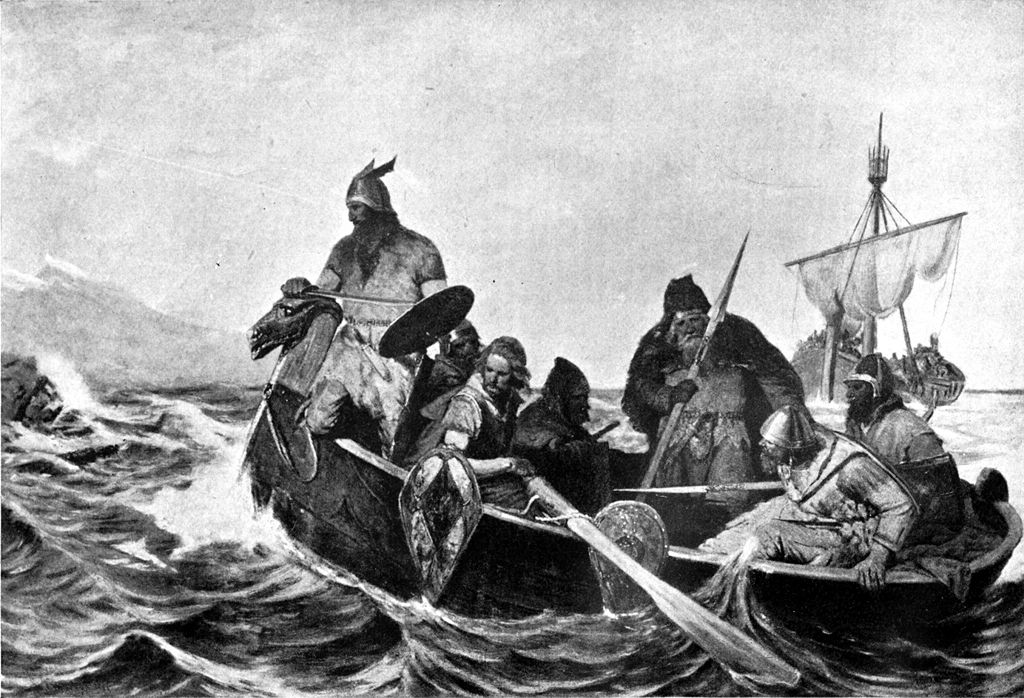The term "Vikings Norseman" evokes images of fierce warriors, longships traversing the seas, and a rich tapestry of mythology and culture. These seafaring Norsemen emerged from the Scandinavian region between the late 8th and early 11th centuries, leaving an indelible mark on history. Their exploits, characterized by exploration, trade, and raiding, contributed to the development of modern Europe as we know it today. As we delve into the world of the Vikings Norseman, we uncover not just their brutal conquests but also their intricate social structures, beliefs, and legacies that continue to fascinate us. The Viking Age was a period of significant transformation, where the lines between myth and reality blurred, creating a compelling narrative that has endured through the centuries.
Exploring Vikings Norseman is akin to embarking on an adventure of discovery. From the legendary tales of gods like Odin and Thor to the historical accounts of Viking leaders and explorers, we are invited to understand the complexities of their society. The Vikings' mastery of shipbuilding and navigation allowed them to venture far beyond their homeland, reaching lands such as Iceland, Greenland, and even North America. This was a culture driven by curiosity, ambition, and a desire for conquest, leaving a legacy that still captivates our imaginations today.
In this article, we will explore the multifaceted world of the Vikings Norseman, addressing key questions about their history, culture, and impact. Whether you are a history buff, a fan of Norse mythology, or simply curious about this remarkable civilization, we aim to provide a comprehensive understanding of what it meant to be a Viking Norseman.
What was the Daily Life of a Vikings Norseman Like?
The daily life of a Vikings Norseman was shaped by their environment and the demands of their society. Contrary to the popular image of relentless raiders, the Vikings were also farmers, traders, and skilled craftsmen. Their communities were built around family and kinship, with each member playing a vital role in the household.
- Farming: The majority of Norsemen engaged in agriculture, growing crops such as barley, rye, and oats, while also raising livestock.
- Trading: Vikings were adept traders, exchanging goods like furs, amber, and iron for silver and spices with other cultures.
- Craftsmanship: Many Norsemen were skilled artisans, creating intricate jewelry, weapons, and ships that showcased their craftsmanship.
What Role Did Religion Play in the Vikings Norseman Culture?
Religion was integral to the lives of Vikings Norseman, influencing their daily practices and societal norms. They worshipped a pantheon of gods and goddesses, each representing different aspects of life and nature.
- Odin: The Allfather and god of wisdom, poetry, and war.
- Thor: The god of thunder, known for his strength and protection of humanity.
- Freyja: The goddess of love, fertility, and war, who played a crucial role in Norse mythology.
The Vikings also believed in the concept of fate, with the Norns—three goddesses who controlled destiny—playing a significant role in their understanding of life and death.
How Did Vikings Norseman Influence Trade and Exploration?
The Vikings Norseman were exceptional navigators and explorers, using their advanced ships to traverse vast distances. Their voyages had profound implications for trade and cultural exchange in the regions they encountered.
- Establishment of Trade Routes: Vikings established extensive trade networks that connected Scandinavia with the Byzantine Empire, the Middle East, and North America.
- Settlement in New Lands: Viking explorers like Leif Erikson reached North America, establishing temporary settlements long before Columbus.
- Cultural Exchange: The interactions between Vikings and other cultures led to the exchange of ideas, technologies, and goods.
Who Were the Notable Vikings Norseman Leaders?
Throughout the Viking Age, several leaders emerged who significantly impacted their society and beyond. These figures are remembered for their conquests, explorations, and contributions to Norse culture.
| Name | Role | Notable Achievements |
|---|---|---|
| Ragnar Lothbrok | Legendary Viking Hero | Conquered Paris and led raids across France and England. |
| Leif Erikson | Explorer | First known European to set foot on North America. |
| Ivar the Boneless | Warrior Leader | Led the Great Heathen Army against England. |
What Legacy Did Vikings Norseman Leave Behind?
The legacy of the Vikings Norseman is evident in various aspects of modern culture, from literature and art to language and social structures. Their impact is still felt today, as many countries in Europe and beyond trace their roots back to Viking settlements.
- Language: Many English words have Norse origins, reflecting the linguistic influence of the Vikings.
- Architecture: Traditional Viking designs have inspired modern architecture in Scandinavia.
- Folklore: Norse mythology continues to captivate audiences, inspiring countless books, films, and television series.
How Did Vikings Norseman Shape Modern Perceptions of Warrior Culture?
The image of the Vikings Norseman as fierce warriors has shaped contemporary perceptions of warrior culture. Their portrayal in popular media has romanticized their lives, highlighting themes of bravery, adventure, and exploration.
While the reality of their existence was multifaceted, the Vikings have come to symbolize a unique blend of warrior ethos and cultural richness. Their stories continue to inspire a sense of awe and wonder, reminding us of the complexities of human history.
Conclusion: What Can We Learn from the Vikings Norseman?
In exploring the world of the Vikings Norseman, we uncover not only their conquests and adventures but also their rich cultural heritage. Their legacy serves as a reminder of the enduring human spirit, characterized by exploration, resilience, and creativity. As we reflect on their impact, we are encouraged to appreciate the diverse narratives that shape our understanding of history and the interconnectedness of cultures across time and space.




